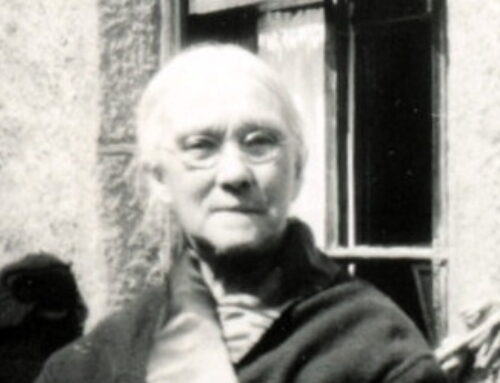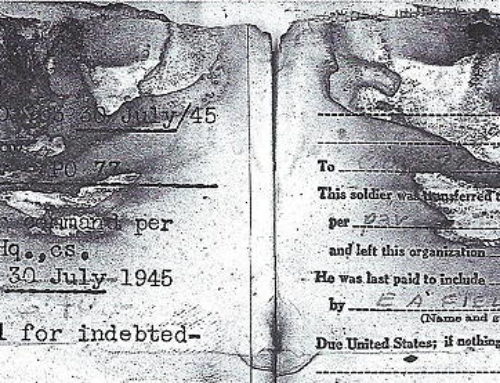The World War I Centenary commemorations are yielding some excellent resources. For genealogists researching relatives who served in World War I, I’ll be highlighting these resources in future posts.
But for today, let’s reflect on this devastating war and its lasting consequences with this poem by 20th-century Czech playwright and author Karel Čapek.
“The End of the Twentieth Century”
When this century collapses, dead at last,
And its sleep within the dark tomb has begun,
Come, look down upon us, world, file past
And be ashamed of what our age has done.
Inscribe our stone, that everyone may see
What this dead era valued most and best:
Science, progress, work, technology
And death – but death we prized above the rest.
We set new records, measuring men and deeds
In terms of greatness; thus we tempted fate.
In keeping with the greatness of our needs,
Our heroes and our gangsters, too, were great.
The XXth century, buried; nonetheless,
World, see what eras yet to come will gain:
Great new records, great inventions. Wretchedness.
And a promised update:
More than 4000 people from across the UK will follow their ancestors’ journey to the Western Front this summer of 2017 for special ceremonies marking 100 years since the Battle of Passchendaele.
It comes after a nationwide search and public ballot, launched by UK Culture Secretary Karen Bradley in January, for descendants with a family connection to the troops who served in the First World War on the Ypres Salient.
Of these, 200 people will be part of a Last Post ceremony under the Commonwealth War Graves Commission (CWGC) Menin Gate, the memorial to the missing in Ypres, Belgium, that bears their relative’s names.
As well as those who were selected in the public ballot, more descendants and visitors will join the commemorations on the eve of the centenary in Ypres’ historic Market Square on 30 July 2017.
There will be an evening of live musical performance with archive footage and photographs projected onto Cloth Hall to tell the story of the Third Battle of Ypres, commonly known as Passchendaele, which caused an estimated 250,000 British and Commonwealth casualties.
With no living veterans of the First World War, their children, grandchildren and great-grandchildren stand at the heart of the government’s official commemorations. Descendants have been invited to share their ancestor’s stories with the wider public online, including in a series of videos, the first of which has been released.





Leave a Reply